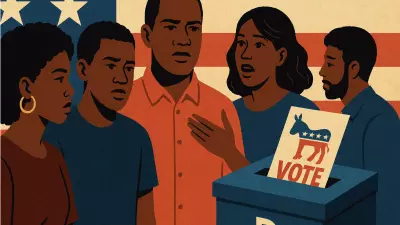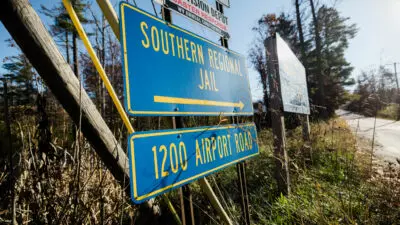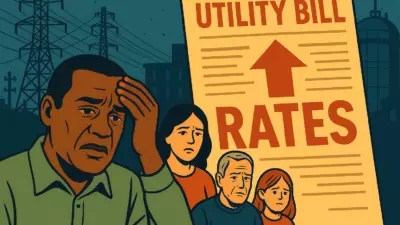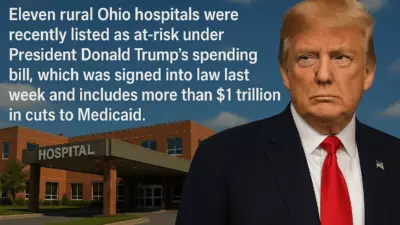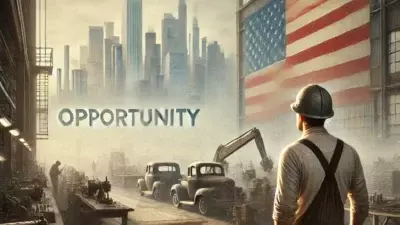Somewhere on the interstate in West Virginia, among the billboards advertising addiction hotlines and the promise of an afterlife, the message jumped out in bold: It Will Get Better.

Traveling on a motorcycle at 70 mph, I couldn’t read the fine print. But the words lingered in my mind long after I sped by, a blunt declaration of hope in backcountry America.
If you follow mainstream media coverage of the Rust Belt and Appalachia, things are going from bad to worse. From economic decay and political extremism to an opioid epidemic with no end in sight, the region is invariably cast as a parable of American decline, its people often reduced to caricatures. Not only do these tropes obscure what’s good; they reinforce the tribalism and distrust that ail the country at large.
My longtime friend and colleague, Carmen Gentile, a native son of Pittsburgh, spent the better part of his adult life covering conflicts overseas. I grew up in Virginia and likewise have built a career as a “crisis journalist.” While our attentions were focused on troubles abroad, the country we grew up in has started to feel less stable. More foreign, you might say. So we decided it was time to throw out our assumptions and explore the homefront up close.
We wouldn’t shy away from the dark stuff. There’s plenty of that. But our mandate was to seek out fresh, offbeat stories of renewal in places that have been neglected or written off, places that I’ve often passed by without a second thought en route to somewhere else.
Over two weeks, and more than 1,300 miles of riding highways and byways through Postindustrial America, we found much that goes against the gloom and doom narrative.
In Youngstown, Ohio, ceramic artist Justin Paik Reese is creating brilliant pottery infused with his mixed Korean-American heritage and neoclassical motifs from local architecture. His workshop would be the envy of artists in Oakland, Calif., or Brooklyn, N.Y., who can’t make rent, and social media is connecting him to clients around the world, giving him more time to create.
When he’s not making ornate urns and bowls and coffee mugs featuring his muse, former NBA wild man Dennis Rodman, he’s raising a family and mentoring a new generation of artists in his hometown.
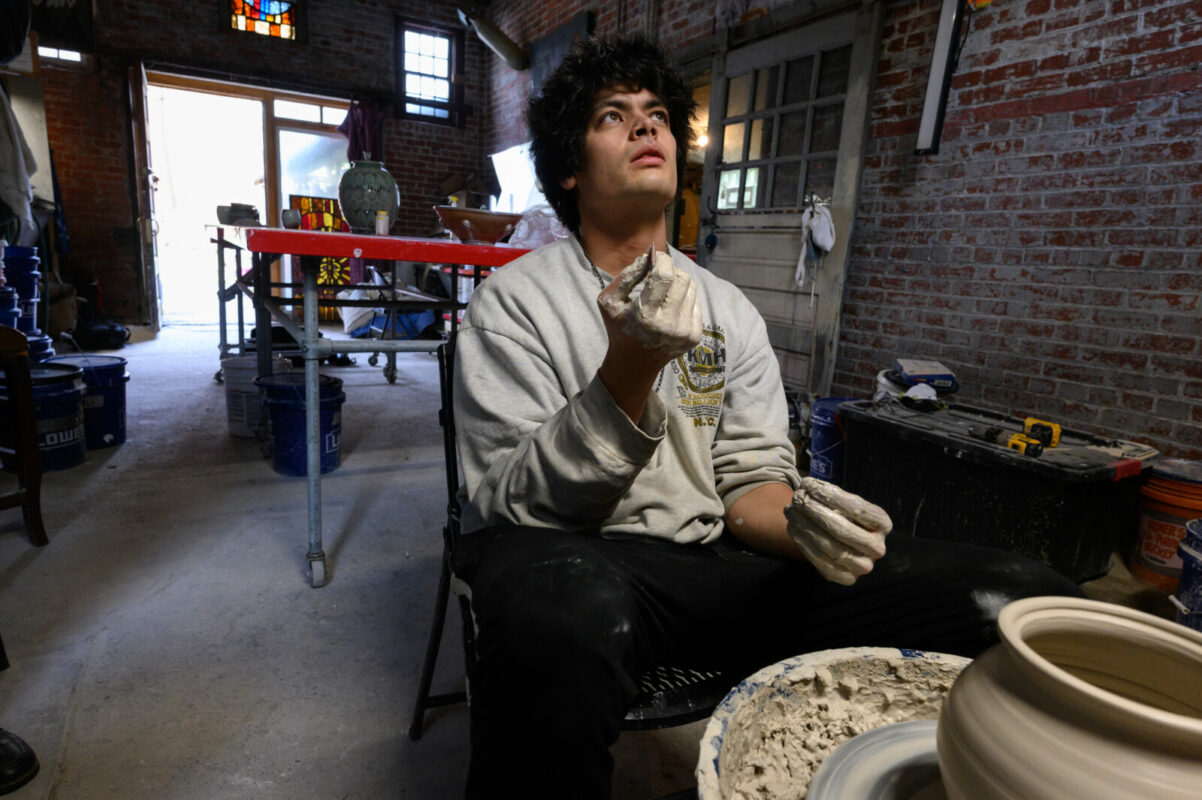
In Cincinnati, we were charmed to find a city brimming with lively public spaces, street art and a palpable sense of community despite the impact of the COVID-19 pandemic and the gathering toll of the opioid crisis. The conversations we had were honest and wide-ranging, the local hospitality robust. When Carmen’s bike got a flat tire, Laketa “Sassy” Cole, a member of the Allstars Motorcycle Club, came to the rescue and got us back on the road — but not before a detour to a raucous gathering at another club’s house, where we were welcomed as friends.
In Charlestown, W.Va., Alasha Al-Qudwah treated us to an afternoon violin concerto on the banks of the Kanawha River.
Raised by a Palestinian father, her sound is a singular marriage of fast-paced Appalachian fiddle work and mournful violin that’s resonant of the Middle East. Alasha gave a sober assessment about the job loss and addiction problems that plague many areas of the state (which has the highest rate of population decline in the country), but she’s not going anywhere. She says the city’s strong support for the arts has allowed her to record her music prolifically while working full time as a teacher.
Farther down the road, at the New River Gorge, we rode through America’s newest national park on a perfect spring day.
The stunning scenery, world-class river rafting and rock climbing continue to attract hardcore thrill-seekers, and the new designation is bringing in more tourists and business: a gift and a curse. Longtime residents Kevin Umbel and Karen Domzalski told us that so far, local families are getting priced out of the market and seeing few tangible benefits from the boom.
Our journey came with its share of bad news. On returning to Newtown, Ohio, a Cincinnati suburb where I made a film on the opioid crisis three years ago, I was struck to learn that a recovering addict I had profiled had relapsed and was in jail.
Police Chief Tom Synan, a veteran officer who embodies the best of the badge, has tracked the woman’s ups and downs for years with an abiding sense of tough love. Despite his interventions, he has watched three generations of the family slip into the cycle of addiction.
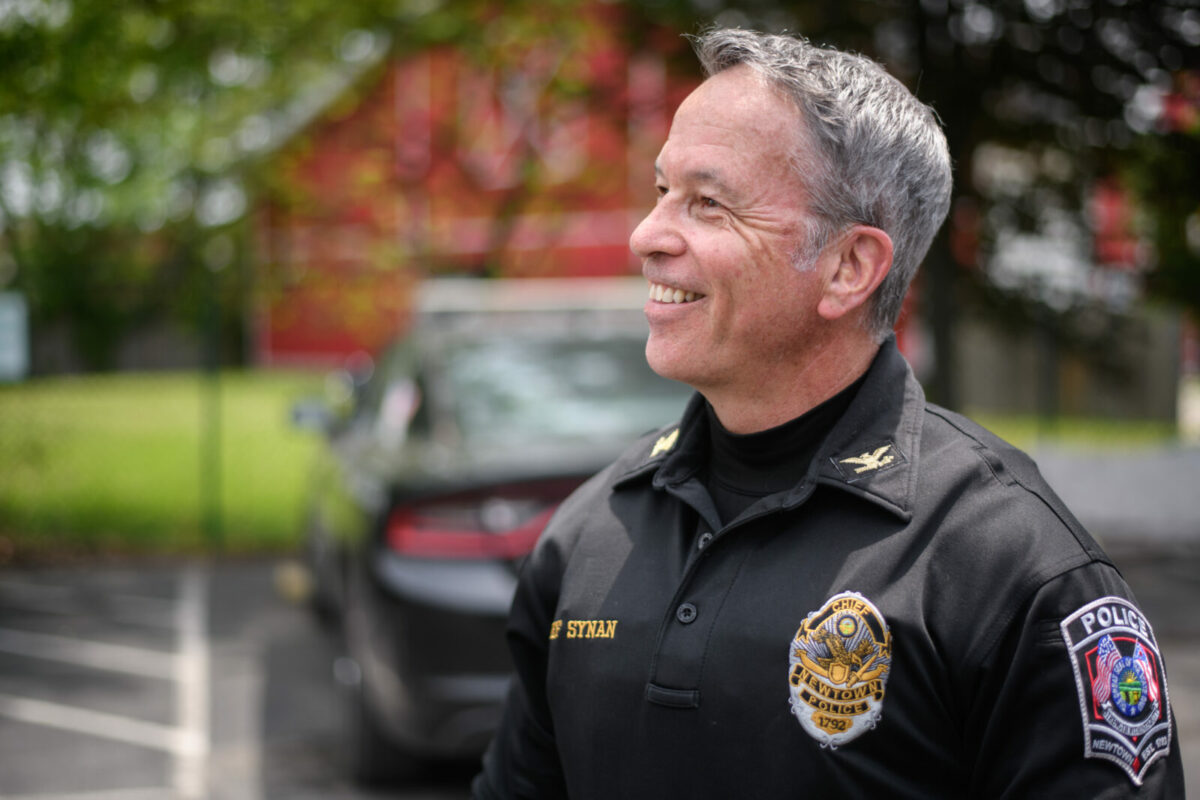
In eastern Kentucky’s coal country, a mining operation that I visited in 2019 on a film shoot was shut down, leaving dozens of workers unemployed. Nearby, another much-hyped tech venture that promised to create hundreds of jobs was scrapped. Internet service is still poor-to-non-existent in some pockets of the state. And across Appalachia, local newspapers are folding or have become a shell of what they once were. More than ever, critical stories are left untold and abuses go unchecked.
Will things get better? There are no easy answers to the social and economic troubles we heard about. Finding a way forward requires honest, open-minded conversations about the issues that most affect the quality of people’s lives — and celebrating the individuals who are working with grit and imagination to add value to their communities.
They are the spark in these uncertain times, and they are thriving in Postindustrial America. We look forward to sharing more of their stories.


